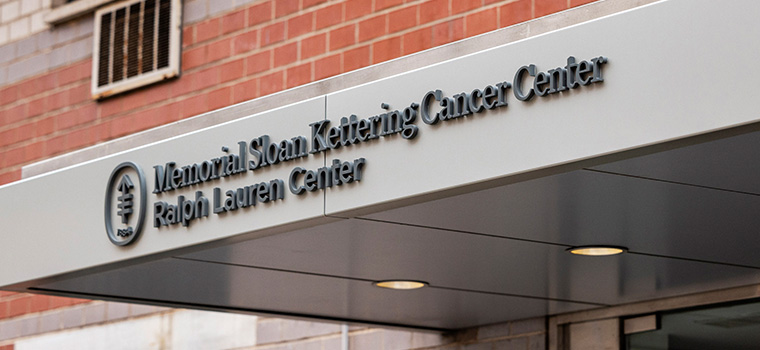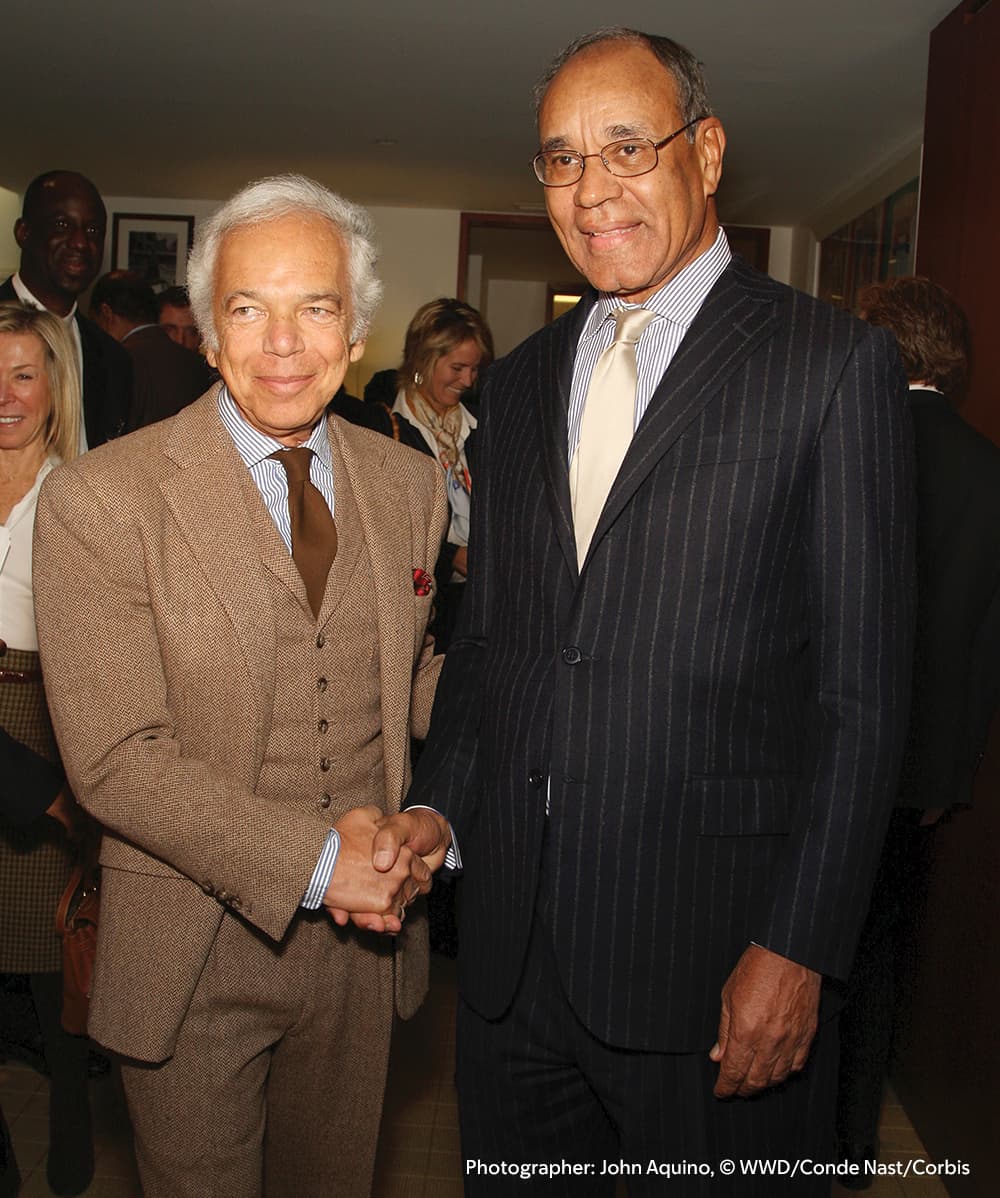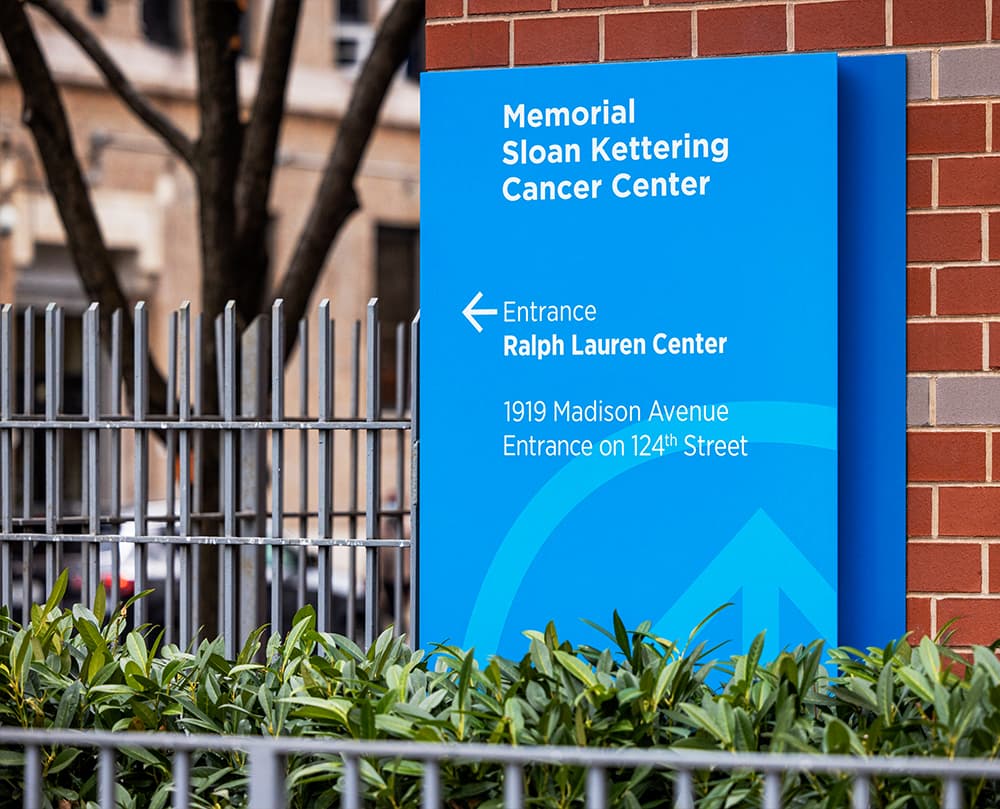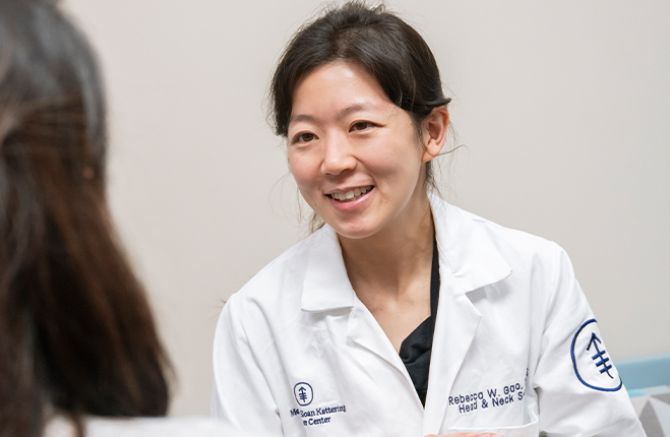The MSK Ralph Lauren Center Celebrates 20 Years

Breaking Down Barriers to Cancer Care
Ralph Lauren has always been ahead of the curve. A fashion innovator, Mr. Lauren has also long championed innovations in cancer research and care, including the critical need to address cancer healthcare disparities.
For two decades, the MSK Ralph Lauren Center (RLC) has addressed these challenges head-on by providing high-quality, accessible cancer care for people living in Harlem and surrounding neighborhoods. Established through a generous philanthropic gift from the Ralph Lauren Corporation in 2003, the RLC began delivering cancer care to a community with one of the highest cancer mortality rates in the nation long before health equity was a trending topic of discussion. The product of a visionary partnership between Mr. Lauren; healthcare disparities expert Harold Freeman, MD; and MSK, the RLC has created a replicable model of care that continues to provide people with access to lifesaving cancer screenings, diagnostics, treatment, counseling, and support.
“Ralph Lauren confronted a problem that many had overlooked, and his actions brought MSK’s world-class cancer care into Harlem,” says Selwyn M. Vickers, MD, FACS, MSK’s President and CEO, who shares Mr. Lauren’s vision of equal and accessible healthcare for all. “In honor of the RLC’s 20th anniversary, we pause to reflect on our past accomplishments and look toward our future intention to bring even more access to people who need it most.”
An Extraordinary Partnership

When Dr. Freeman first met with Mr. Lauren more than two decades ago, he never imagined the extraordinary partnership the two men would strike up with MSK. Dr. Freeman, President of North General Hospital in Harlem at the time, had already devoted much of his life to advocating for health equity. He was known for pioneering the concept of patient navigation, a model of care management that helps guide people through the complexity of the healthcare system and addresses nonmedical barriers to their getting the care they need, such as language and transportation.
Paul Marks, MD, then MSK’s President and CEO, reached out to Dr. Freeman about meeting with Mr. Lauren, who wanted to impact the lives of people with cancer. They were also joined by Harold Varmus, MD, who was transitioning to take over as MSK’s next President and CEO.
Dr. Freeman shared with Mr. Lauren the disparities he had witnessed throughout his career as a cancer surgeon and hospital administrator working with poor and historically underserved communities. He routinely saw women of color with breast cancer so advanced that very little, if anything, could be done to save them. For many, it was the first time they had received care.
“I became very discouraged and began to wonder, what can I possibly do about this?” recalls Dr. Freeman. “So, I started talking to these women and asking them, ‘What happened? Why did you wait until you were bleeding or had an ulcerated mass to come in?’ And they told me their stories.”
The truth was, most women had sought help, or at least had tried. Some had gone to an emergency room but had been turned away because their case wasn’t urgent; others had had issues with health insurance, transportation, or childcare. Some didn’t know where to turn. Their reasons were varied and complex, and part of a much bigger problem that still exists in many communities today.
“Ralph stood up after I was done speaking, shook my hand, and said, ‘I will help you,’ and walked out of the room,” remembers Dr. Freeman. “A few days later, I get a call from the Ralph Lauren Corporation informing me that Ralph wants to give $5 million to start a new center in Harlem focused on diminishing disparities in cancer care.”
A Revolutionary Center
 In 2003, the RLC, known then as the Ralph Lauren Center for Cancer Care and Prevention, was created in partnership with MSK and North General Hospital, unlocking new opportunities for people in Harlem to get quality cancer care. Dr. Freeman became the center’s first medical director.
In 2003, the RLC, known then as the Ralph Lauren Center for Cancer Care and Prevention, was created in partnership with MSK and North General Hospital, unlocking new opportunities for people in Harlem to get quality cancer care. Dr. Freeman became the center’s first medical director.
In a press release at the time of the center’s opening, Mr. Lauren said, “I am inspired by Dr. Freeman's commitment to improving the healthcare and lives of the poor and underserved, not only in Harlem but across the nation. His leadership and compassion for the needs of the Harlem community helped raise my awareness of this critical issue. I wanted to respond to that need. With this gift, our goal is to establish a center in Harlem that could be a model for other centers around the country.”
From the start, the RLC focused on addressing the whole patient, providing high-quality care in a warm, welcoming, and culturally sensitive environment.
“When you walk into the Ralph Lauren Center, it feels homey and comfortable, more like a friend’s living room than a cancer center,” explains Cindy McCollum, Senior Vice President of Hospital Administration at MSK, who has been involved with the RLC since the beginning. “The signs are in English and Spanish, and we have several staff who are bilingual and even trilingual. At the RLC, we bring MSK’s clinical excellence into a setting that is familiar and welcoming to all people, no matter their circumstance.”
In addition to offering screenings for breast, prostate, cervical, skin, and lung cancers, the RLC hosts community health fairs, informational seminars, and nutrition counseling for people struggling with obesity, a known risk factor of cancer.
The RLC has screened, educated, and cared for thousands of people over the years. Like any bold enterprise, it has faced challenges, including the closure of North General Hospital in 2010. At that time, MSK became the sole partner of the RLC, and Mr. Lauren remained steadfast in his support through the Ralph Lauren Corporate Foundation. In 2019, the RLC officially became an ambulatory care center of MSK.
“When the RLC first opened, it was connected to MSK. Today, it is part of MSK, and MSK is part of Harlem,” says Dr. Freeman. “This is a revolutionary change for the people of Harlem, to have this kind of access to the very best cancer surgeons, physicians, nurses, and staff, particularly when you consider how it was before this all started. I’m very enthusiastic about what will happen in the future.”
Expanding Access to World-Class Cancer Care
A plaque honoring Dr. Freeman’s long-standing commitment to ending cancer disparities now hangs in the RLC, which continues to be a replicable model for high-quality and culturally sensitive care. In 2022, the Ralph Lauren Corporate Foundation announced a $25 million commitment to support the RLC and establish four additional centers across the United States to address inequalities in cancer care in underserved communities.
The RLC continues to deepen its connection to Harlem and surrounding areas through meaningful partnerships. The team works closely with MSK’s Immigrant Health and Cancer Disparities Service, which operates a Mobile Health Unit (MHU) to bring cancer screenings, services, education, and counseling to people living in New York City neighborhoods with little access to healthcare and transportation. The MHU has significantly increased visits to Harlem and nearby communities and referred more people in need of additional care to the RLC, thanks to this collaboration. The RLC also partners with churches, businesses, parks, and schools to better connect with residents.
“Physically going out, speaking to, and engaging with members of the community will not only enhance the RLC’s prominence but strengthen trust among the people we serve,” explains Pamela Drullinsky, MD, who recently became the RLC’s Medical Director. “It is important for our neighbors to see us on the streets, understand our connection to MSK, and feel comfortable coming to us for help.”
The people of MSK are united by the singular mission of ending cancer for life, and the RLC remains prominent in this pursuit.
“The greatness of a place like MSK lies in our ability to treat people from every spectrum of life. There’s data to show that when you improve access for those who historically can’t get in, you improve the quality of care for everyone else as well,” explains Dr. Vickers. “For more than two decades, Ralph Lauren and the Ralph Lauren Corporate Foundation have understood this reality and recognized the enormous need to remove barriers that prevent people from accessing quality care. Their vision has saved lives, and together, we will continue to build a healthier community, one that ultimately benefits us all.”
